View current news articles, commentary, videos and more that have an impact on Jewish culture, politics and religion at Rabbi Silverman's Sites to See
When it comes to the Gregorian calendar, there are things we Jews do and things we don't do: the Peculiar case of Birkat Tal u'Matar vs. Thanksgiving
(This gets a bit complicated so put on your thinking cap!)
Some wonder why, in our standing devotion (Amidah), we request that God send "dew and rain" for a blessing from December 4th until Passover [and discontinued after]. Why is this tied to the secular calendar and not to the Jewish calendar? Actually, in Israel, it is tied to the Jewish calendar because the blessing for "dew and rain" (Tal u’Matar) begins on Cheshvan 7 each year. Why? This is because the Israelis didn't want rain for two weeks when they began their pilgrimage back from Jerusalem. Who needed mud and rain during travel?
It was the Jewish community of Babylonia, followed by all of the diaspora, that decided to wait 60 days following the autumnal equinox (Sept 23) to recite the blessing, because the harvested crops took 2 months to fully dry. Well then, why do we not begin to pray for rain on Nov. 22, which would be 60 days from the Autumnal Equinox? The answer is that Pope Gregory, in the 16th century, decided to rob October of ten days to correct a discrepancy in the calculation of the length of the year. Unlike the Greco-Roman Julian calendar, which assumed the length of the year to be 365.25 days, the actual time computation, based on the earth's orbit, is 365.2422 days. That difference would henceforth be corrected, according to Gregory, by not taking a leap day (a Feb 29) during the century year unless it was a century year divisible by 400 (which is why we had a leap day in Feb. in the year 2000). It was determined by astronomers of the day that the calendar had gotten 10 days ahead of itself. So these ten days were omitted in that year of 1583.
The Jewish community of that century didn't accept the correction to the Julian Calendar. As far as they were concerned, the 60 days from the Equinox would henceforth fall on December 2, not November 22! So why are we now beginning prayer for rain on December 4th? Because they also didn't accept Pope Gregory's correction to omit a leap day each century year. Therefore, in 1700, the date advanced to December 3. In 1800, the date advanced an additional day to December 4th. In 1900, many prayer books failed to make the adjustment to December 5. In 2000 both the Julian and Gregorian calendar agreed to include a leap day. Presumably, if prayer books do due diligence in the future, the prayer will advance to December 5 in 2100, where it should have been already, and to December 6 in the next century, 2200. Fast forward 30,000 years or so, and our descendants will pray for winter rains as we approach summer! But we should be so fortunate that Judaism has the staying power to have such problems! Or who knows, some great sage in a future era may say we should accept Pope Gregory's leap day omission on century years.
We have, however, some unanimity to accept the November computation of Thanksgiving as the 4th Thursday in November. There are some ultra-Orthodox communities that don't believe in observing any holiday on the secular calendar–only Jewish ones–but most traditional communities of the last 150 years or so accept the observance of the civic holiday of Thanksgiving. There ought not to be a problem observing a civic holiday that all Americans mark. Most importantly, Thanksgiving, as currently observed, is a day of gratitude to God for the precious blessings our country and our God bestows. That, actually, is a Jewish imperative every day of the year. We mark that very sentiment each and every day when recite the psalm in the morning "it is good to give thanks to God and to sing Your praises on High!" Naturally, it can and should be marked with our dietary restrictions and so forth as American stands for the right of all to practice their religion. We also have no problem with observing it on the appropriate day rather than 10 days later. Since it is anchored in the American calendar, which has accepted the Julian accounting of time, there is no reason to make adjustments.
If any of this information is wrong, by the way, because math is not my strong suit, please let me know! To quote Wilbur Cross' 1936 proclamation, "as the chill and frost begin to set in in these darkening days of autumn under the heel of Orion" Beth and I wish you and your families a year that is fertile and prosperous, a year of plenty–rich in blessings, and a very happy Thanksgiving.
